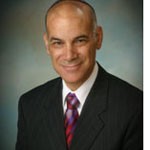By Rabbi Leonard Rosenthal

SAN DIEGO — In this week’s parasha Jacob wrestles with a Divine Being. Before releasing him, Jacob demands that the Being bless him. The Divine Being declares: “Your name shall no longer be Jacob, but Israel, for you have striven with beings divine and human and have prevailed.” (Gen. 32:29)
Theories abound as to whom exactly the Divine Being was and the meaning of Jacob’s battle with him. In the Talmud two rabbis even disagree on Jacob’s perception of the Divine Being as it approached. “Rabbi Shmuel bar Nachmani said that he appeared to Jacob as an idolater (an enemy). Rabbi Shmuel bar Acha said that he appeared to him as a scholar (a friend). (T.B. Chulin 71a)
At first glance it seems odd that these two rabbis would disagree about Jacob’s perception of the same event. After all, the Divine Being was an objective fact. Surely Jacob knew what he saw.
Or did he? The truth is that our perception of “objective reality” is based on many conscious and unconscious factors. In the case of Jacob, whether he saw the approaching angel as an enemy or a friend might have been determined by his relationship with the Canaanites around him. If Jacob had good relations with the Canaanites he might have thought a stranger approaching him was a friend. If he distrusted his neighbors he might have perceived the stranger as an enemy.
The recent events in Ferguson, Missouri, show us the effect that one’s personal history may have on perception and the limitations of eyewitness accounts. One of the complex problems the Grand Jury faced is the conflicting accounts of numerous witnesses in Officer Wilson’s shooting of Michael Brown. Some witnesses said they saw Brown struggling with Wilson inside the police car. Others said there was no struggle. One even said that Brown never had any part of his body inside the car. Some witnesses said that Brown was aggressively charging the officer while others said he had his hands up in surrender.
All of the witnesses saw the same events. Their perception and memory of what they saw, however, was shaded by their thoughts and feelings about race, youth, power, and law enforcement. Even when there is a video tape, what one sees is shaped by a variety of recognized and unrecognized prejudices.
What’s the take-home message?
First, to be more understanding of those who disagree with us. It may not be that they are “lying,” but rather that their observations may be textured by who they are.
Second, we should always be aware of how our own prejudices may color our objectivity. Just because we believe something is an objective fact does not make it so.
Coming from a tradition that believes in multiple “truths” should make us sensitive that sometimes ultimate Truth is hard to pin down.
*
Rabbi Rosenthal is spiritual leader of Tifereth Israel Synagogue in San Diego. Comments are welcome in the space provided below this article or the author may be contacted directly via leonard.rosenthal@sdjewishworld.com